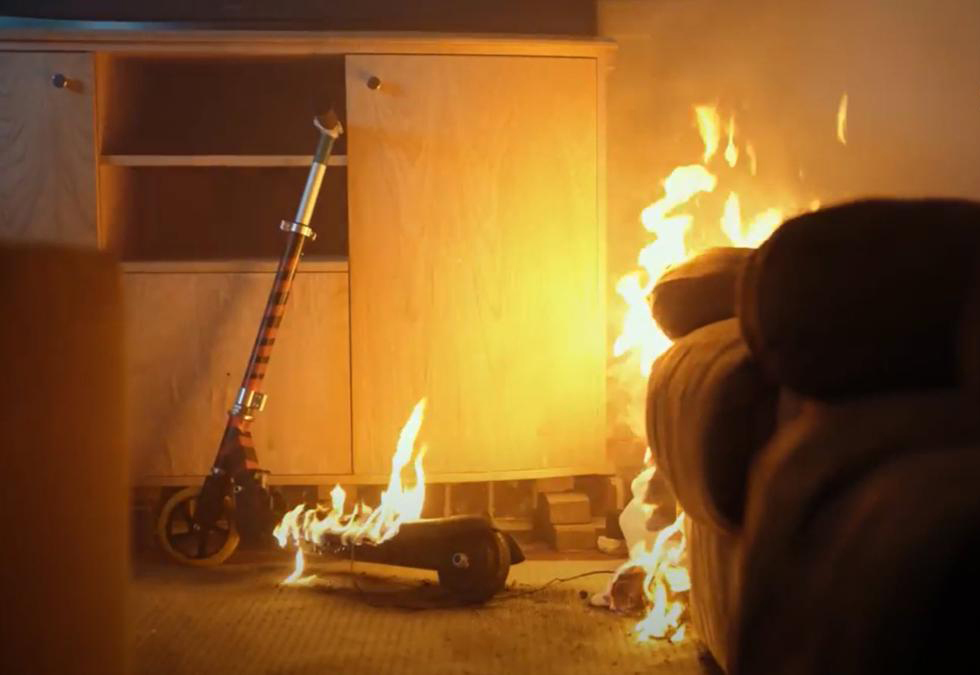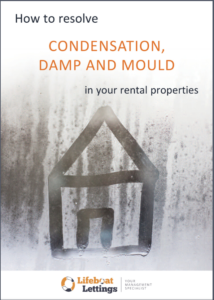
E-bikes and e-scooters help reduce our carbon emissions and help keep us healthy – surely? What’s not to like? Shouldn’t it be something landlords should encourage? Many tenants will own e-bikes (and sometimes e-scooters), indeed, they are often used by delivery riders, for example, working for online retailers such as Amazon.
However, there is a problem. The Guardian reported in May 2023 that there had been 102 fires associated with e-bikes and scooters up to August this year, with a forecast of 338 for the whole year. At least 190 had been injured and eight people killed.
So, as a landlord and property owner, it pays to inform yourself of the laws associated with e-bike and e-scooter ownership and take the necessary steps to protect yourself, your investments and your tenants.
The Problem in More Detail
The problem is that e-bikes and e-scooters are powered by batteries, mostly lithium-ion batteries, and in some circumstances, these can overheat and/or explode, causing severe fires. The incidence of these fires are increasing. When these batteries are manufactured by reputable companies and used properly, there are very few issues. The problems tend to occur when cheap batteries or chargers are purchased, for example, off the internet or when batteries are not looked after properly and continue to be used when damaged.
If a fire does start, it can be very dangerously uncontrollable due to thermal runaway occurring due to chemical reactions in the battery. If this happens the resulting fire can be ferocious and difficult to put out.
Legal e-bikes, ‘illegal’ e-scooters.
Firstly, let’s just clarify the laws associated with e-bikes and e-scooters. E-bikes are fully legal, in much the same way as pedal bikes are legal. They can be used under all the circumstances that pedal bikes are permitted to be used. According to the Government website, it must have a maximum power output of 250 watts and should not be able to propel the bike when it’s travelling more than 15.5mph.
The situation with e-scooters is slightly more complicated. The purchase and ownership of e-scooters is actually legal, however, they can only be used on private property and with permission of the landowner. So in effect, for most people there is little point in them owning one. The exception to this is where they are rented from approved companies in one of the few designated government trial areas. In these areas they are subject to a speed limit of 15 mph (less in some situations), and riders must have a full or provisional driving license with a category Q entitlement. Currently there are no plans to allow wider – derestricted – use of e-scooters in the UK.
Despite this, e-scooters are very easy to buy in the UK if you want one, and no doubt many tenants will have purchased e-scooters and will be keeping them at the property. They will also likely be using them illegally in public places. In addition, the cheaper e-scooters and batteries (see later) often do not comply with UK legislation and have not been produced under rigorous manufacturing standards, and it is these products – rather than the rental e-scooters being used in the trial areas – which seem to pose the most risk.
So, When do Batteries Cause Fires?
Just to be clear, it is not the e-scooters or e-bikes themselves that cause fires but the batteries, and in particular, how the batteries are used. Evidence so far points to the following circumstances that have contributed in one form or another most, if not all of the fires reported so far:
- Counterfeit batteries have been purchased – for example, cheap batteries purchased off the internet. These often lack the necessary safety features.
- Batteries have been damaged e.g. if they have been dropped or damaged in some way.
- The wrong charger is used for the particular battery.
- Batteries have been subject to extreme temperatures – most have a safe operating temperature of between -20°C to 60°C (4°F to 140°F).
- Overcharging – leaving batteries plugged in for long periods of time can increase the risk of fire.
What is the Advice for Landlords?
You can’t really stop tenants from keeping e-bikes or scooters. Indeed e-bikes are to be encouraged as they are healthy and help the environment.
If possible, though, as you would for a regular pedal bike, try to provide somewhere they can be stored outside the property, for example, in a locked shed or garage. Ideally, these should have electricity so batteries can be charged here rather than in the house or flat itself. Then if a fire does occur, hopefully, it will be limited to the shed or garage and will not spread to the property itself.
It is recognised however that this is not always possible, especially in a rented flat or other property with insufficient outside space.
HMOs: House Rules for e-bike and e-scooter Owners.
For landlords owning and operating HMOs, it is recommended to have some house rules for tenants keeping e-bikes or scooters, which tenants should sign at the same time as they sign their tenancy agreement.
Make it clear that these are for their safety and explain why. As an example, these are some of the terms that could be included in the ‘house rules’:
- The landlord or property manager must be notified if any tenant is keeping or intends to keep an e-bike or e-scooter at the property.
- All batteries and chargers must meet official UK safety standards.
- All chargers used should be the official correct charger for the battery concerned.
- Batteries should be allowed to cool before charging.
- Manufacturer’s instructions should be followed at all times.
- Batteries should not be tampered with or modified.
- Batteries should be checked carefully before charging to make sure that they have not been damaged (e.g. by being dropped) and that there are no cracks, dents, or leaks in the battery casing.
- Batteries should be kept clean, as dust and dirt build up on the battery contacts can cause them to overheat.
- Batteries should not be left to charge unattended and should be unplugged as soon as they have finished charging.
- Batteries should be disconnected when not in use and kept in a battery case or fireproof bag.
Conducting Regular Property Inspections.
Property and room inspections are essential for both HMOs and single lets for many reasons. One of the main ones being that they are required by many insurers. Conducting a property inspection will allow you to check if your tenants own an e-bike or e-scooter.
During the inspection, have a chat with them about safety and draw their attention to the problems of fires. If the rental unit is in an HMO, also discuss the house rules and other legislation associated with safety and compliance. If they are charging batteries indoors, for example, in the kitchen or in their HMO room, it is particularly important that you have this discussion. Make sure any findings from the inspection are followed up in a letter to the tenant.
Insurance.
Finally, check your insurance to make sure that you are covered for damage from battery fires. Most landlord insurance should provide for this, but it is worth checking. Just as a reminder, your property insurance as a Landlord will not cover any damage to the e-bike or e-scooter owned by the tenant and it is not possible for you as Landlord to provide cover (via your insurance) for any contents that is the property of a tenant. For instance, in an HMO your insurance will cover contents such as furniture provided for the tenants’ use during their tenancy, but it will not cover any additional contents brought into the property by the tenant.
In conclusion.
While e-bikes and e-scooters offer significant environmental and health benefits, the increasing risk of battery-related fires demands our attention as responsible landlords and tenants. To protect your investments and the safety of those under your care, it’s essential to stay informed about regulations and safety measures. Together, let’s ensure safe and sustainable living spaces for all. Contact us today to discuss your management needs.




